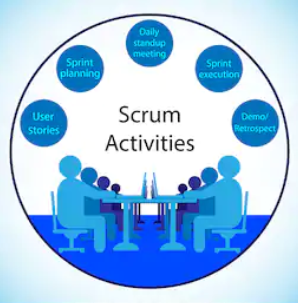One of the reasons Scrum remains as powerful as
an agile framework is due to the way it implements an Empirical Process Control instead of a defined process control.
These two forms of creating solutions take vastly different approaches in the
way they structure development and planning.
Empirical Process Control
An Empirical
Process Control utilizes an iterative process with constant improvements to
develop solutions. It bases the process on agile fundamentals. By using an
iterative process you promote inspection and adaptation into each individual
step as your team furthers their understanding of the issues you’re seeking a
solution to. This results in a stronger overall process that constantly
receives improvements.
Through using Empirical Process Control, your team can create solutions in a fast-paced
environment without requiring an extensive breakdown of tasks. Instead, this
form of process control relies on your team to develop the solution as they
proceed based on past performance. This allows for rapid changes as the issues
unfold and your team learns more with each solution they create.
Defined Process Control
When using a Defined
Process Control, your leader creates a defined process with discrete steps
to come up with a solution to the issue. Your team then follows these steps in
a linear fashion, rarely moving backwards to a previous step even if they find
a better option. This prevents your team from employing agile fundamentals such
as continuous improvement. It also makes it more difficult to improve on your
processes as it typically follows the same set of steps for every project. This
leaves little room for changes to be made as there are almost always more
projects in the pipeline.



